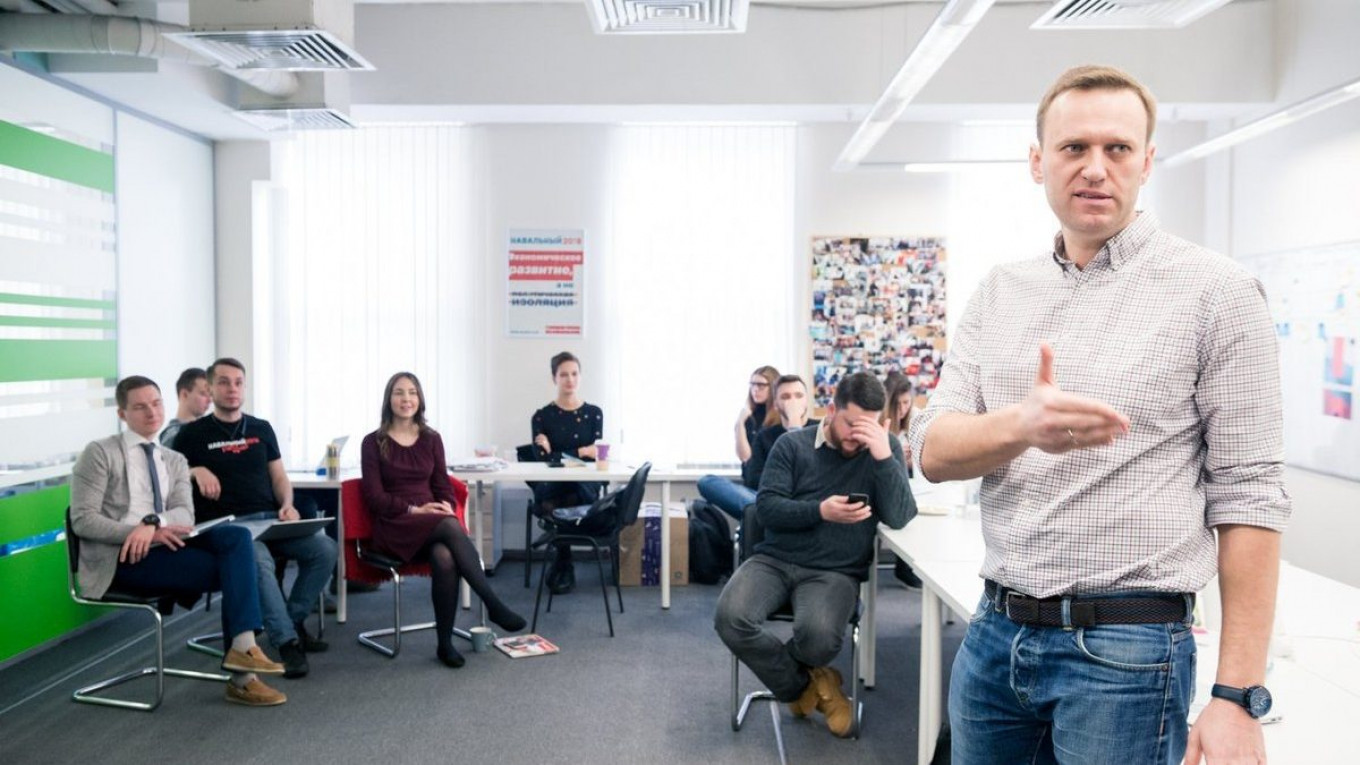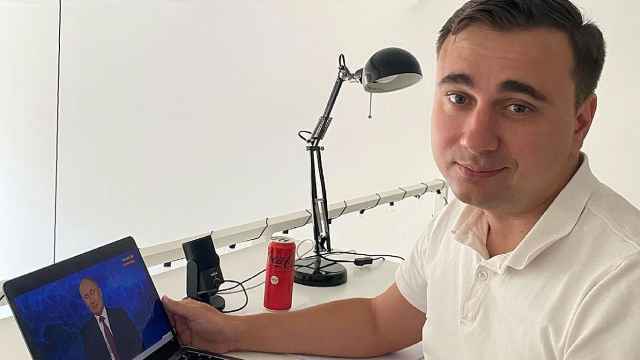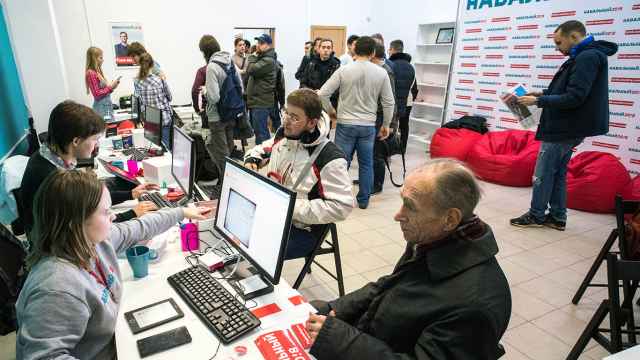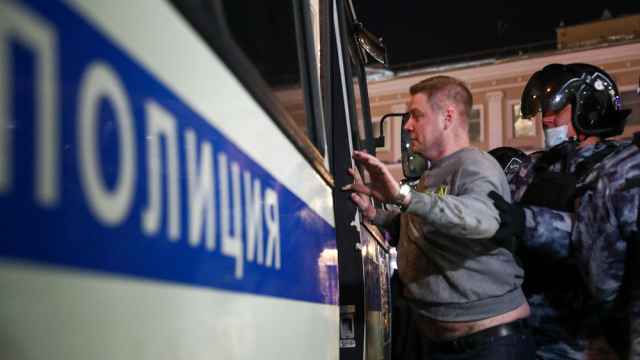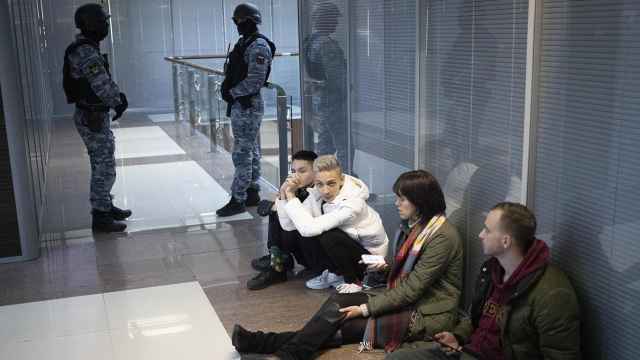A Russian court has outlawed the political and activist networks of jailed Kremlin critic Alexei Navalny as “extremist” in a closed-door hearing Wednesday, effectively dismantling one of Russia's most potent opposition forces amid a wider crackdown in the lead-up to parliamentary elections.
The designation bars opposition groups affiliated with Navalny from crowdfunded operations and puts their members and supporters at risk of up to six years in prison.
After a marathon hearing that lasted more than 12 hours, the Moscow City Court ruled to designate Navalny’s Anti-Corruption Foundation (FBK) and the affiliated Citizens’ Rights Protection Organization as “extremist” organizations.
The hearing took place behind closed doors because the authorities say the case materials contain classified information.
Founded in 2011 and operating under an onerous “foreign agent” designation for two years, Navalny’s FBK has carried out high-profile investigations into alleged corruption among Russia’s ruling elite.
Its viral exposé of President Vladimir Putin’s alleged $1.3 billion seaside palace has racked up more than 100 million YouTube views since January and fueled mass nationwide rallies. FBK’s latest video investigation released on the eve of the court ruling revealed what it said were the exorbitant salaries of Kremlin-funded RT contributors, racking up nearly 2 million views in less than 24 hours.
Several top Navalny associates have been placed under house arrest in the wake of the rallies, while a handful of his key aides fled Russia to continue their work.
Though his allies have vowed to fight on, analysts say Wednesday's ban is effectively the “final extermination” of Navalny’s movement.
Navalny, 44, was sentenced to two and a half years in jail in February upon his return to Russia following his recovery abroad from a near-fatal poisoning in Siberia that he blames on the Kremlin.
The Kremlin denies involvement and maintains that Russian law enforcement authorities are unable to investigate Navalny’s poisoning until Europe hands over evidence that he was poisoned with Novichok, a Soviet-era military-grade nerve agent.
Commenting on the Moscow prosecutor’s office April request for the court to outlaw Navalny’s movement, President Vladimir Putin’s spokesman that month told reporters that “the law needs to be observed.”
The Navalny groups’ “extremist” designations ban Russia’s most potent opposition force from operating months ahead of parliamentary elections where the pro-Putin ruling party battles historically low approval ratings to maintain its supermajority.
The Kremlin critic’s allies have vowed to continue their “Smart Voting” strategy that seeks to unseat United Russia party candidates by rallying support for any other challenger this September.
The ruling comes amid what the opposition calls a heightened campaign of pressure on dissenters and possible challengers in the lead-up to the vote, a claim the Kremlin denies.
Ivan Pavlov, a prominent defense lawyer who represented Navalny's groups in the “extremism” case, faces criminal charges in what his colleague called an attempt to “push him aside” in the Navalny case.
Dmitry Gudkov, a non-Navalny-affiliated opposition politician who planned to run for parliament, fled to Ukraine last week over what he called a "fake" criminal case against him.
He had been briefly detained a day after another well-known anti-Kremlin campaigner, Andrei Pivovarov, was yanked off a Warsaw-bound plane in St. Petersburg minutes before takeoff.
Pivovarov, the ex-head of the recently disbanded pro-democracy group Open Russia, now faces up to six years in prison on criminal charges cooperating with an "undesirable organization."
A Message from The Moscow Times:
Dear readers,
We are facing unprecedented challenges. Russia's Prosecutor General's Office has designated The Moscow Times as an "undesirable" organization, criminalizing our work and putting our staff at risk of prosecution. This follows our earlier unjust labeling as a "foreign agent."
These actions are direct attempts to silence independent journalism in Russia. The authorities claim our work "discredits the decisions of the Russian leadership." We see things differently: we strive to provide accurate, unbiased reporting on Russia.
We, the journalists of The Moscow Times, refuse to be silenced. But to continue our work, we need your help.
Your support, no matter how small, makes a world of difference. If you can, please support us monthly starting from just $2. It's quick to set up, and every contribution makes a significant impact.
By supporting The Moscow Times, you're defending open, independent journalism in the face of repression. Thank you for standing with us.
Remind me later.


